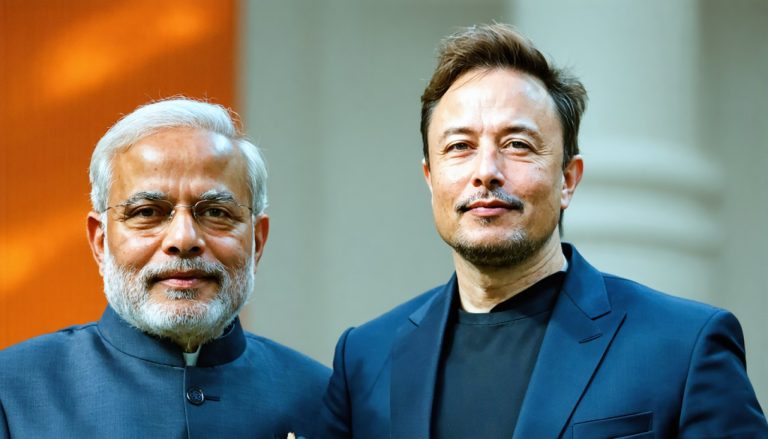
- Eric Schmidt warns that the Trump administration’s actions threaten America’s scientific and technological leadership, especially compared to China’s significant investments in tech advancements.
- Budget cuts and reduced support for U.S. research institutions risk stagnating innovation and discovery.
- The funding freeze, such as the $2 billion aimed at Harvard, exemplifies financial constraints impacting academic freedom and research pursuits.
- Uncertainty in immigration policies makes the U.S. less appealing to international scholars, threatening its competitive edge.
- Schmidt’s concerns highlight growing unease in the tech community regarding policies that may hinder U.S. global stature and innovation.
- The critique raises the fundamental question of whether short-term policy objectives will compromise America’s long-term position as a global tech leader.
Former Google CEO Eric Schmidt has sounded an urgent alarm, decrying what he perceives as the Trump administration’s assault on science—a movement that threatens to undercut America’s technological edge over a surging China. At a recent gathering of experts at the AI+Biotechnology Summit, Schmidt described the situation as a dire strategic misstep. Across the Pacific, China invests a trillion dollars into technological advancements, building a foundation that could overshadow the United States’ faltering scientific ambitions.
Imagining America’s universities, once vibrant with research and discovery, now hamstrung by budgetary cuts evokes a troubling image of stagnation. Schmidt lamented the dwindling support for research agencies and the diminished staffing at pivotal scientific institutions. The administration’s funding freeze of $2 billion aimed at Harvard follows the broader pattern of financial constraint dictating academic compliance. Such moves cast a shadow over the future of scientific innovation in America, particularly at a time when global tech leadership is increasingly contested.
As Schmidt, an alumnus of Princeton and a titan in the tech sector, paints this picture, he points to a chilling ripple effect. International scholars, who once viewed U.S. institutions as beacons of opportunity and advancement, now hesitate, skittish from the uncertainty surrounding immigration policies. This hesitance from international talent threatens to erode America’s competitive edge further, as the nation risks becoming less attractive for the world’s brightest minds.
While some tech leaders continue to align with government views, Schmidt’s stark assessment reflects a growing unease within the tech community. As he navigates the crossroads of technology and policy, Schmidt issues a fervent reminder that these decisions are not mere political skirmishes. The potential damage is real and unfolding now, as policies seemingly at odds with technological advancement threaten to impair America’s global stature.
Ultimately, this discourse beckons a broader question: In an era where global technological leadership pivots on relentless innovation and open collaboration, can America afford to cede ground due to short-term policy agendas? Schmidt’s resounding critique serves as both a wake-up call and a rallying cry for policies that embrace, rather than alienate, scientific pursuit and global collaboration.
Eric Schmidt’s Urgent Message: Why U.S. Science Needs Immediate Support to Maintain Technological Leadership
Context and Impact of Funding Cuts on U.S. Science
Former Google CEO Eric Schmidt’s warning highlights a critical moment for the United States: its standing as a global tech leader is at risk due to policy decisions that undermine scientific progress. The Trump administration’s budgetary cutbacks, particularly the $2 billion funding freeze affecting institutions like Harvard, signal a retreat from robust scientific investment, at a time when China is injecting tremendous resources into its tech sector. This raises several key concerns and areas worth exploring further.
The Importance of Scientific Funding
1. Research and Innovation: Scientific funding is essential not only for innovations that drive economic growth but also for maintaining national security through technological superiority. Quality research outputs often depend on substantial investment in projects with long-term horizons, a point critically cited by scientists and strategic planners alike.
2. Job Creation and Economic Growth: Investments in science and technology foster job creation and spur economic growth by forming knowledge economies, as indicated by research from the National Bureau of Economic Research (NBER).
3. Global Collaboration: American scientific projects often involve international collaboration, which requires stable funding to attract and retain top-tier global talent.
Potential Solutions and Recommendations
To address Schmidt’s concerns and ensure America’s technological competitiveness, consider the following actionable strategies:
1. Policy Revisions: Re-evaluate budgetary allocations by increasing federal funding for research-intensive institutions. Prioritize grants that drive innovation and cutting-edge research.
2. Immigration Policies: Implement favorable immigration policies to attract and retain international scholars and researchers, ensuring they view the United States as a premier destination for scientific advancement.
3. Public-Private Partnerships: Encourage partnerships between government, academia, and industry leaders to co-develop solutions that harness innovation. Initiatives like these are critical in countering strategic advances from rival nations.
Market Forecasts and Industry Trends
1. Biotechnology and AI Investment: With China rapidly advancing in AI and biotechnology, analysts predict an escalating competition for technological dominance. continued investment is necessary for the U.S. to maintain pace or overtake in these fields.
2. Education and Workforce Development: There is an increasing need for educational programs that integrate AI and biotechnology into their curricula to prepare the future workforce effectively.
Challenges and Controversies
1. Balancing National Security and Openness: While fostering international collaboration, the U.S. must also ensure that intellectual property and national security are safeguarded. This delicate balance is a focal point of ongoing debate.
2. Equitable Distribution of Resources: Ensuring that scientific funding is distributed equitably to a diversity of institutions and regions is another major challenge, highlighting concerns about inclusivity and broad-based support.
Conclusion and Next Steps
The message from Eric Schmidt resonates as an important reminder of the strategic importance of scientific funding and open collaboration. Addressing these challenges with urgency could reinstate the U.S. at the forefront of global tech innovation. By fostering an environment conducive to growth and inclusivity in the realm of science and technology, the U.S. can continue to inspire global confidence and attract leading minds.
For more insights and updates on technological advancements, visit Google.
Quick Tips for Immediate Application
– Advocate for increased funding for local research institutions through community and political engagement.
– Support policy initiatives that seek to restore funding and improve immigration policies for scientists and researchers.
Relevant Keywords
– U.S. technological leadership
– Scientific funding
– Global collaboration
– Eric Schmidt
– Innovation and research.



